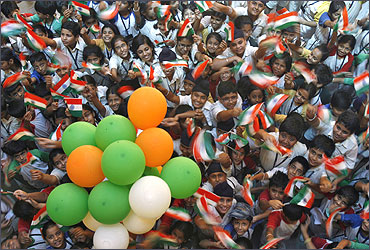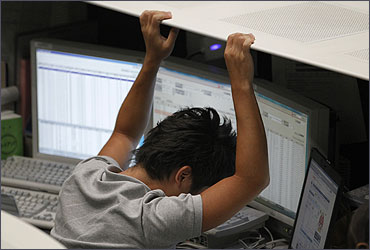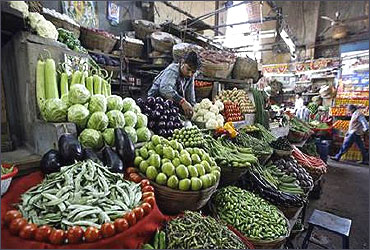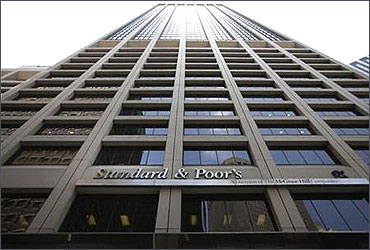
Standard and Poor's has said there is no immediate threat to India's sovereign debt rating of BBB, though loose fiscal policy and the government's inability to carry forward economic reforms could have implications in the medium term.
"We do not see an immediate impact on India's sovereign rating (BBB-/Stable) resulting from the lowering of the US sovereign rating to AA+," Standard & Poor's sovereign analyst Takahira Ogawa told PTI.
S&P recently lowered the sovereign rating of the US to AA+ from AAA. The ratings are opinions that reflect the ability and willingness of the rated entity to meet financial obligations.
Click on NEXT for more...

The decision to lower the sovereign rating of the US had deleterious consequences for stock markets all over the world, including India.
Referring to problems with regard to high inflation and the fiscal deficit in India, Ogawa said, "Potential longer-term consequences may point to negative factors."
He further said that while tight policies could have a positive bearing on the country's rating, a deterioration in fiscal health and setbacks on the economic reforms front might result in a downgrade.
India has been struggling to deal with inflation, which is nearing the double-digit mark. Headline inflation stood at 9.44 per cent in June, while food inflation was 9.90 per cent for the week ended July 30.
Click on NEXT for more...

On the fiscal side, rising prices of crude oil and high food and fertiliser subsidies, coupled with the inability of the government to raise Rs 40,000 crore (Rs 400 billion) from the divestment of equity in public sector companies during 2010-11, could create problems.
Inflation, Ogawa said, "remains India's biggest challenge in the near-term, as high inflation could push up credit costs and dampen the country's economic growth trajectory."
Although the pace of food price rise seems to have stabilised to "some extent", the prices of manufactured products are still increasing, he said.
Click on NEXT for more...

Referring to public finances, Ogawa said, "Ballooning fiscal deficits also constrain the sovereign ratings on India. Continuing its fiscal consolidation policies into fiscal 2012 will be a key challenge for the government."
India's sovereign rating, S&P said, could be raised if "the government continues to reduce the public sector's deficits materially.
"For example, future government initiatives to significantly reduce subsidies for fertilisers, foods and fuels would be a positive factor in improving the expenditure structure of the budget and reducing the negative influence of potential external shocks on India's fiscal position," the agency said.